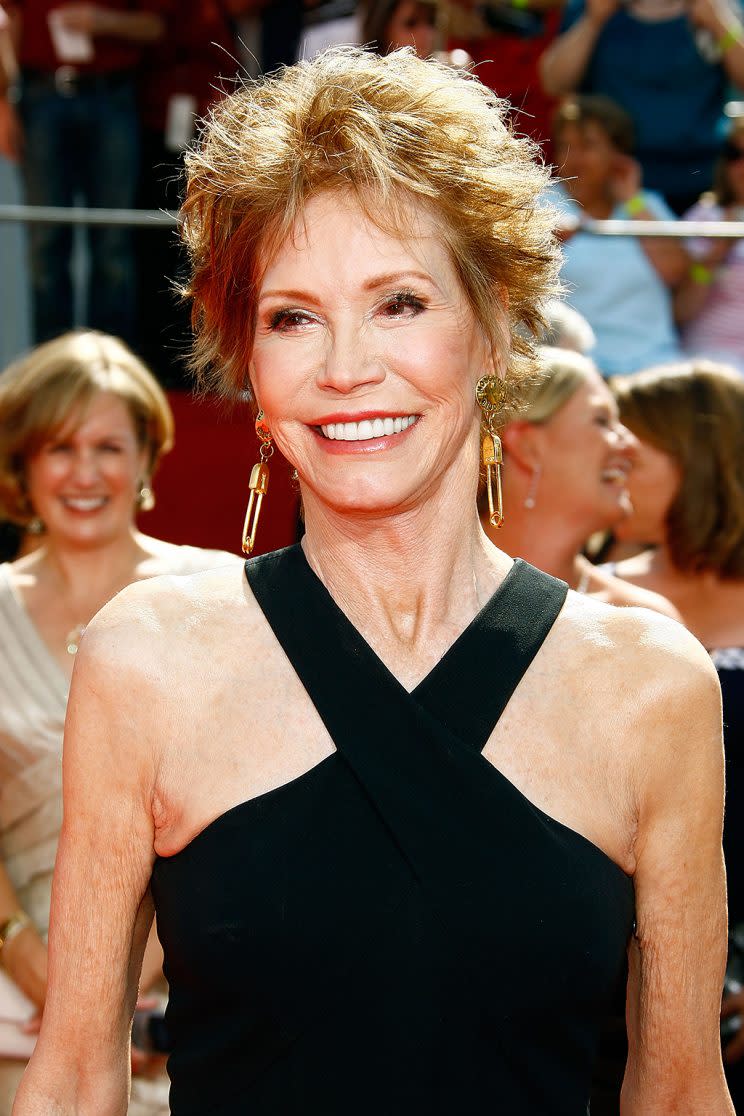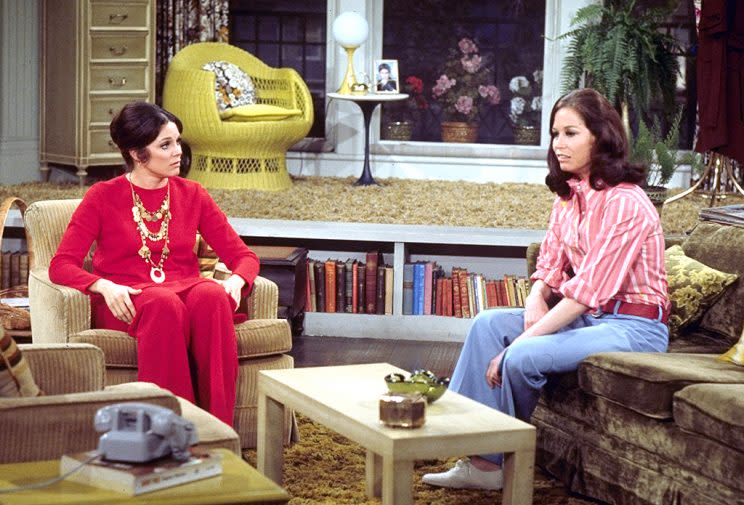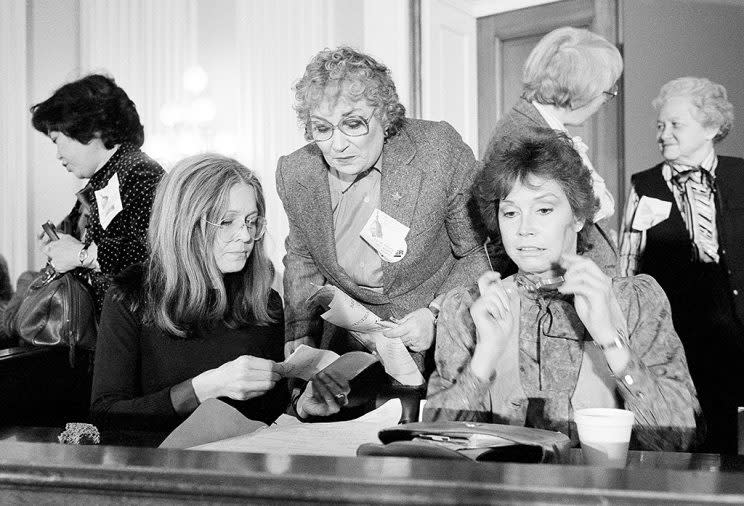Mary Tyler Moore Didn’t Set Out to Be a Role Model for Women, but She Was

Mary Tyler Moore — who passed away on Wednesday at the age of 80 — wanted to be remembered as someone who “made a difference in the lives of animals.” When pressed to consider her TV career, Moore added, “As somebody who always looked for the truth, even if it wasn’t funny.”
She didn’t say anything about wanting to have a legacy as a woman who challenged the establishment or persuaded people to reconsider a woman’s role in the world. The phrase “feminist icon” was never mentioned. But she did that — and yes, she was funny while doing it.
Related: Legendary Actress Mary Tyler Moore Dies at 80
Following her turn on The Dick Van Dyke Show, Moore portrayed a single woman navigating her career and friendships first and then her love life, at a time when that just wasn’t done, on the long-running Mary Tyler Moore Show in 1970. The barrier-breaking character she played was an example of a strong (but not too strong), independent woman who could appeal to everyone — even nonfeminists — at a time when the status of women’s rights was being debated, much as it is today. It was a step toward winning over people who thought they would never support the cause.

Episodes focused on TV producer Mary Richards as she confronted issues like equal pay and the pill, without getting preachy and with a dash of laughs. An episode about Mary and her best friend, Rhoda, making plans for the Women’s March is easy to imagine.
“She went in there and made feminism OK,” Jennifer Keishin Armstrong, author of the book Mary and Lou and Rhoda and Ted: And All the Brilliant Minds Who Made The Mary Tyler Moore Show a Classic, told the New York Daily News. “But she had to be the good girl first.”
Over seven seasons that brought 29 Emmys, Moore introduced the masses to a likable, independent woman. She didn’t intimidate the men, and many women in the audience who went on to become influential in TV were inspired.
“I think Mary Tyler Moore has had more influence on my career than any other single person or force,” Oprah Winfrey said in a 2015 retrospective that PBS did on Moore’s career.
Related: Remember When … Mary Tyler Moore Surprised Superfan Oprah Winfrey?
Comedian Tina Fey’s parents used to keep her on her best behavior by threatening to keep her from watching The Mary Tyler Moore Show.
While audiences were watching Mary’s adventures play out, Moore said, she was feeling pressure to join the women’s movement from feminist advocate Gloria Steinem but resisted.
“I believed — and still do — that women have a very major role to play as mothers,” Moore told PBS for a history-of-TV documentary in 2013. “It’s very necessary for mothers to be involved with their children. And that’s not what Gloria Steinem was saying. Gloria was saying you can do everything and you owe it to yourself to have a career. I didn’t really believe in that.”
In fact, some advocates criticized the show for failing to go far enough. One of Steinem’s complaints was that Moore’s character referred to her boss by “Mr. Grant” and not his first name, as the other characters did.

Moore — who had a son who died at 24 in 1980 — eventually did advocate alongside Steinem for women’s rights. She also campaigned for the reelection of Democratic President Jimmy Carter, calling out his support of women’s rights.
In her later years, the actress was outspoken about a genderless cause — diabetes, which she struggled with throughout her adult life. She also grew more conservative, judging from a March 2009 interview with Parade in which she revealed that she watched “a lot of Fox News.” Asked if she was a “right-winger,” Moore described herself as “maybe more of a libertarian centrist.” She would have campaigned for John McCain if he had asked, she said.
Related: Mary Tyler Moore Worked Hard to Raise Awareness of Diabetes
What didn’t change was her place in TV history. Her Mary Tyler Moore co-star Cloris Leachman spoke to her legacy in that PBS tribute.
“When she came on, it changed America,” Leachman said. “So many women have told me it changed their lives. It made it possible for them to work themselves.”
And, yes, Moore also made a difference in the lives of animals.

